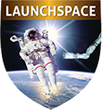Launchspace presents a special live and on-site course prior to the 47th Aerospace Mechanisms Symposium (AMS) on May 13 & 14, 2024.
Fundamentals of Space Vehicle Mechanisms
Course Description:
Fundamentals of Space Vehicle Mechanisms is a special edition of the internationally popular course on this topic. The instructor, Bill Purdy, explores the technologies required for successful space mechanisms design and offers a detailed look at many of the key components common to most mechanisms. The materials necessary to achieve high performance are discussed. Examples of the many types of mechanisms are included for illustration. In addition, mechanisms’ relationships and interfaces with other vehicle systems are explored. The course includes design and analysis examples to demonstrate principles involved in understanding how mechanisms should work and how design margins should be evaluated during the evolution of a program.
If you want to pick the right type of motor for your application, lubrication for your application or angular measurement device for your application, then this is the right course. You will learn the fundamentals of space mechanisms from a leading mechanisms expert. A unique benefit is the instructor’s sharing of his experience and lessons learned.
This course is at the right level for someone:
- With less than 15 years of experience with space mechanisms
- Who is responsible for the design of aerospace mechanisms
- Tasked with analysis activities in thermal or structural elements of mechanisms
- With responsibility for developing drive electronics for mechanisms or
- Tasked with systems work related to implementing mechanisms
Course topics include:
- Mechanisms used in space vehicle
- Pointing subsystems, motors and feedback devices
- Bearings, gears and lubrication fundamentals
- Release and deployment systems
- Power transfer and slip rings
- Mechanisms analysis
- Critical materials for mechanisms
- Spacecraft – mechanism interfaces and sources of mechanism requirements
Instructor:
The instructor for the course is Bill Purdy. Bill has over 30 years of hands-on experience in the space engineering field with wide-ranging involvement in both spacecraft mechanisms and systems engineering disciplines. He has been one of the leaders of the space mechanism industry’s transition from explosive release mechanisms to non-explosive devices. Mr. Purdy has been involved in 35 successfully flown spacecraft and has worked on over 50 flown mechanisms including gimbals, release mechanisms, deployables and many other types of mechanisms. He is the Associate Editor of the industry-standard handbook Space Vehicle Mechanisms – Elements of Successful Design and the author of the chapter on non-explosive release mechanisms. He has published many Aerospace Mechanisms Symposia Papers and was the 1999 winner of the Herzl Award. Mr. Purdy holds a BSME from the University of Maryland.
Registration and Fees:
This course will be held on-site in Virginia Beach prior to AMS. However, this course is not part of the 47th AMS Conference and a separate fee is payable for delegates attending this course in addition to any AMS registration fees.
Fundamentals of Space Vehicle Mechanisms Course Tuition
US$795.00 including complete course materials and Certificates of Completion.
Registration link: https://www.launchspace.com/svm2024reg/
For further Information Contact:
Launchspace Services
info@launchspace.com
+1.202.258.6133
